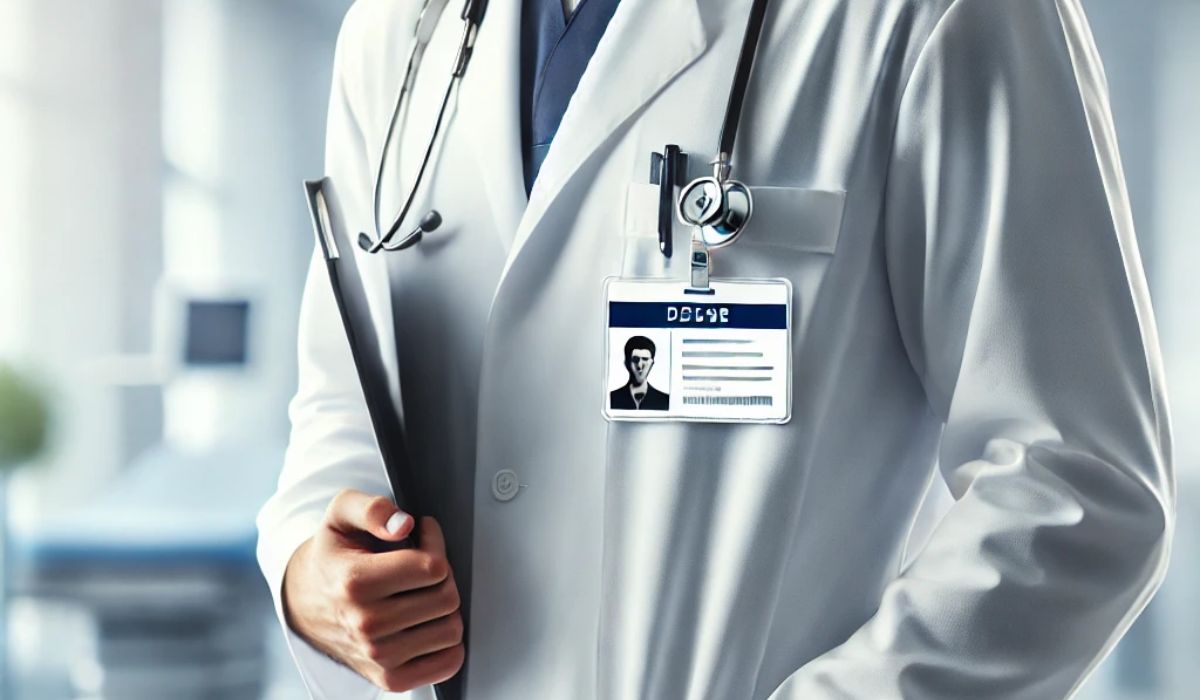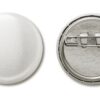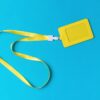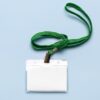A hospital badge serves as a crucial form of identification for healthcare workers, displaying key details such as their name, role, department, and often a photo. Beyond basic identification, hospital badges enhance security and organization within medical environments. Many are integrated with advanced technologies like RFID chips, barcodes, or magnetic strips, enabling functions such as controlled access to restricted areas, logging work hours, or tracking equipment.
Why Do We Need Name Badges In Healthcare?
Name badges in healthcare serve multiple purposes, making them indispensable in medical settings. Here are some key reasons why hospital badges are necessary:
- Establishing Trust And Transparency
When patients and their families engage with healthcare staff, a visible name badge helps them easily identify the individual and their role. This transparency promotes trust, a crucial element in building effective communication and delivering quality patient care.
- Ensuring Security
Hospital badges are vital in maintaining security within healthcare facilities by controlling access to restricted areas, a measure of particular importance in sensitive zones like operating rooms, maternity wards, and pharmacy storage areas.
- Professionalism And Accountability
Wearing a hospital badge reflects professionalism and shows that staff are part of a trusted organization. It also helps hold employees accountable, as their identity is always visible.
- Streamlining Workflows
Some hospital badges are integrated with technology to allow access to systems, track working hours, or even facilitate cashless payments in cafeterias. This streamlining can improve overall efficiency within the workplace.
- Patient Safety
Clear identification helps patients know who is treating them, minimizing the risk of confusion or mistakes. It also makes it easier for patients to address concerns about their care when needed.
Do Nhs Staff Have To Wear Name Badges?

Yes, the staff working in the NHS are mandated to wear name badges while on duty. This is done to increase transparency, accountability, and professionalism. Most badges contain the employee’s picture, name, job title, and department. For instance, nurses, doctors, and administrative staff wear badges that easily identify them for patients and other staff members.
The NHS views name badges not as a formality but as integral to patient care. The badges guarantee the patients and visitors know whom they are dealing with, instilling confidence and faith in the health care system. Moreover, wearing a hospital badge is often part of an NHS staff member’s uniform policy, thereby not negotiable.
What Is A Blue Badge Nhs?
“Blue Badge NHS” refers to a specific badge system in some healthcare facilities. However, two common uses of the term need to be distinguished.
- Blue parking badges for disabled individuals: These are badges issued to people with special parking rights because of their disabilities. Although not an NHS-specific initiative, most NHS facilities provide designated parking bays near entrance points for the convenience of Blue Badge holders.
- Special identification badges: In some NHS trusts, a blue hospital badge may signify a particular role or level of access. For example, it might denote senior staff or specific departments, making it easier to identify personnel within the hospital.
The context of the “Blue Badge NHS” can vary depending on the institution, but in any case, it’s a system designed to improve organization, accessibility, or recognition.
Why Is It Important That Staff Wear Identification Badges While At Work Nhs?
Wearing identification badges is crucial in NHS settings for several reasons:
- Enhancing Patient Confidence
Patients are especially vulnerable when visiting a hospital. Identification badges can help them easily recognize who is responsible for their care. Knowing the names and roles of the staff they interact with can also reduce patient anxiety.
- Ensuring Workplace Security
Hospital badges are essential in busy environments where staff, patients, and visitors move throughout the premises. These badges assist security teams in identifying authorized personnel, thereby reducing the risk of breaches or incidents.
- Promoting Collaboration
With so many roles and departments in the NHS, identification badges make it easier for staff to recognize each other. This is particularly helpful in large hospitals where employees may not know every colleague by name.
- Emergency Response
In emergencies, identification badges allow first responders or other team members to quickly identify staff roles and responsibilities. This can expedite decision-making and ensure that the right person is called upon to handle critical tasks.
- Professional Image
Wearing a hospital badge is part of presenting a professional image. It shows that the NHS staff member is part of a credible and organized healthcare system, which is vital for maintaining the institution’s reputation.
Conclusion
Hospital badges, including those with personalized name badges, transcend their basic function as mere pieces of plastic; they are indispensable instruments for ensuring safety, promoting professionalism, and optimizing efficiency within healthcare settings. From cultivating patient trust and rapport to bolstering security measures and streamlining operational workflows, the significance of proper identification badges cannot be overstated. Within the National Health Service (NHS), these badges fulfill a critical role in upholding the established standards of patient care and organizational efficacy that patients have come to expect.
Should your healthcare facility be considering enhancements to its current identification system, an investment in customized name badges that accurately reflect your organization’s values and branding is highly recommended. With diverse personalization options and a suite of advanced features, these badges can be both functional and professional. Order here to explore our array of hospital badges. For bulk orders or specific customization needs, don’t hesitate to request a quote today.







